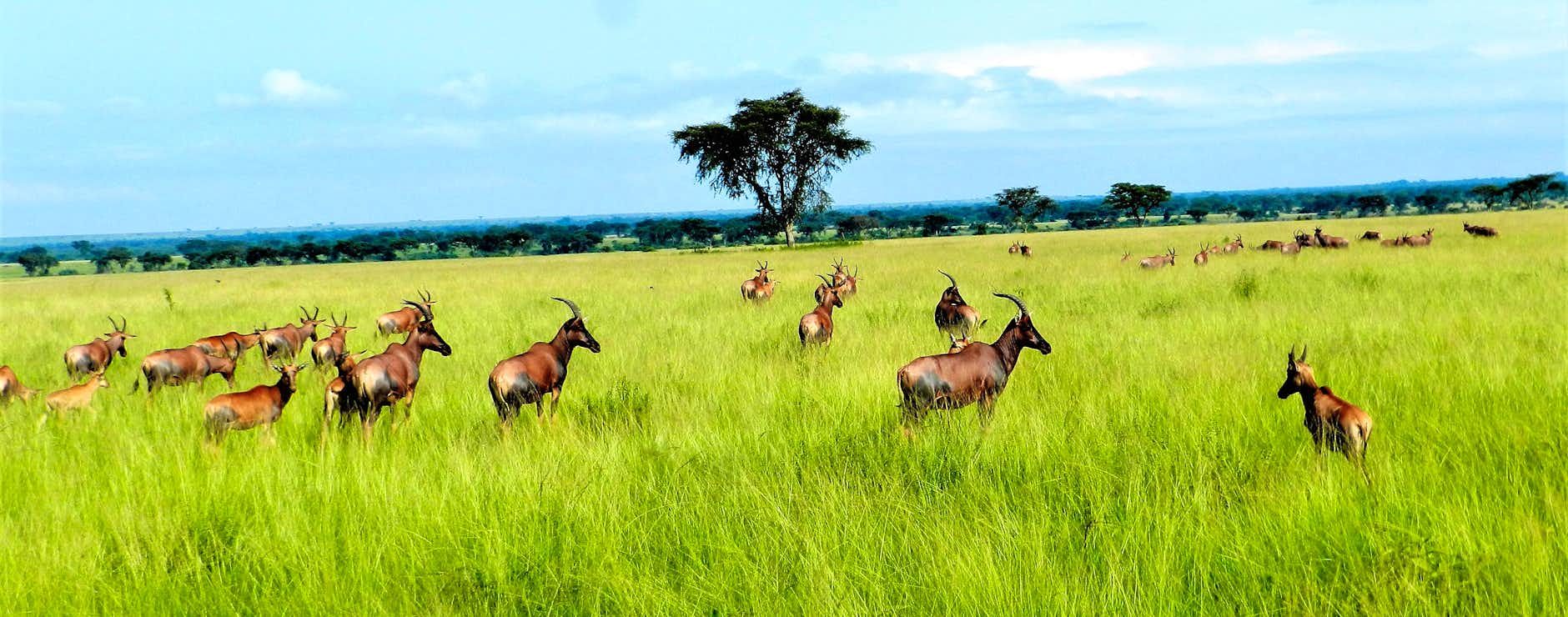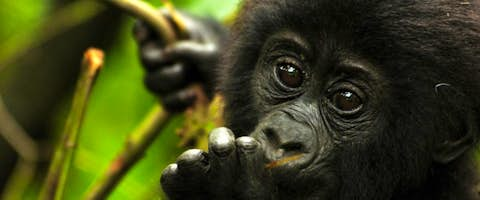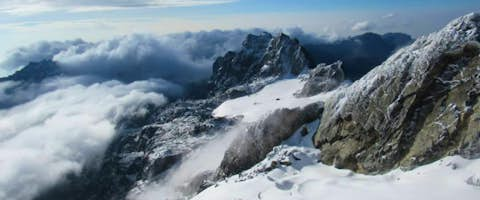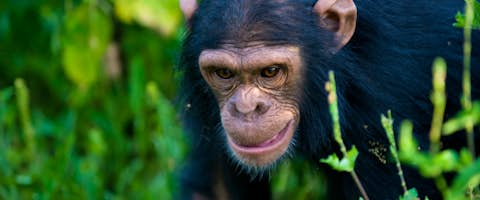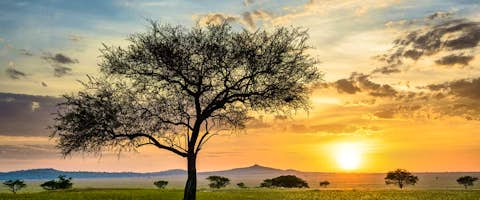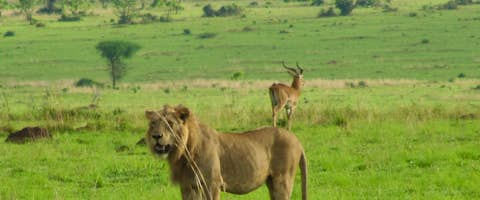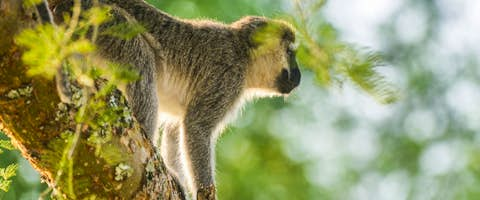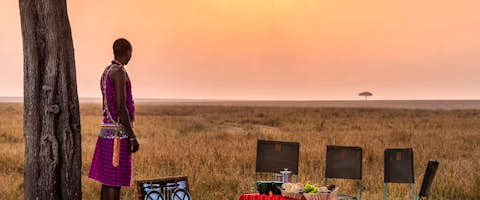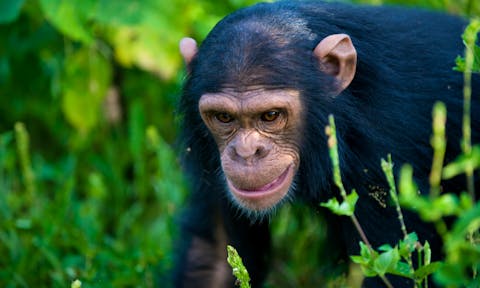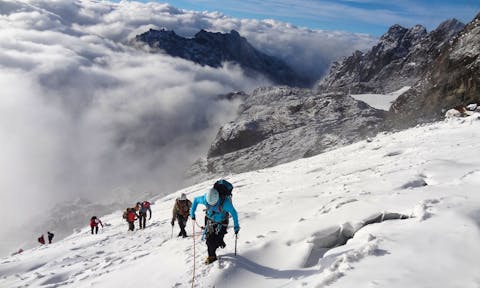FAQs
-
What makes Uganda special?
Uganda is most famous for its mountain gorillas. Over half the world's mountain gorillas are found in the southwestern pocket of Uganda. Gorilla trekking in Uganda is arguably the most impressive wildlife encounter in Africa. Uganda is also famous for its chimpanzee population, making chimp trekking another highlight of many trips in Uganda.
Beyond the primates, Uganda's extraordinary bio-diversity and landscapes make it a fantastic safari destination. Big cats, elephants, and giraffes are just some of the wildlife you will find on a safari in Uganda.
There are few places in Africa that can combine gorilla trekking and savannah safaris with snow-capped mountain peaks. It is the extraordinary range of experiences on offer in Uganda that make it so special.
-
How long is a typical trip?
With so much on offer in Uganda, it is possible to spend months in the country and discover something new every day.
Most first time visitors of Uganda will focus on the south-west and include gorilla trekking and/or chimpanzee trekking. These experiences are typically combined with a game drive or boat safari on Uganda's savannah parks. An experience like this typically falls within 7-10 days.
The vast majority of the trips we run are tailor-made, so we'll design an itinerary that fits with your travel schedule, interests, and budget.
-
When is the best time to go?
The whole idea of 'best time to go' doesn't really apply to Uganda. The country is equatorial and so receives rainfall through most of the year. Plus, weather patterns seem to be changing, making rigid seasonality outdated.
Temperatures are quite consistent year-round. The degree of rainfall is all that separates the seasons. March and May is the long rainy season, and October to November is the short rainy season. The gorillas can be visited at any time of year.
You can see a month-by-month breakdown of Uganda here.
-
Is it safe?
There is a general perception that the African continent is a dangerous and risky place in which to travel. It is a perception held by many repeat visitors contemplating a trip to a new region, just as much as it is by the first-timer nervously planning their long-for visit to the continent.
The reality is that, just like any other place, the African continent is a land of complex truths, delicate nuance and ever-changing reality.
That is why when you ask us a question, you’ll rarely get a short answer. But it is also why we will always send you away confident that not only will you be safe, but that you will feel safe. When you emerge from the monochrome airport into the sounds and smells of Africa, you will soon forget that you were ever concerned.
Read our full guide on safety in Uganda.
-
Is it expensive?
Compared to most African safari destinations, Uganda is one of the least expensive options. Safaris in Uganda are cheaper than in Kenya, Tanzania, and Rwanda. Zimbabwe has made a push towards luxury in recent years making it more expensive than Uganda. Zambia and Botswana are also more expensive than Uganda.
Gorilla permits add a fixed cost to most itineraries ($700 per person at time of writing) but even accounting for this Uganda is cheaper than its neighbouring safari destinations.
The price you pay depends heavily on the length of your trip, the standard of accommodation you prefer, and the number of people you are travelling with.
-
What is the accommodation like?
Uganda has a wide selection of accommodation options and increasing portfolio of luxury lodges. The popular national parks have options ranging from luxury to budget, and in the Rwenzori Mountains there are adventure camping options.
The short answer is that no matter your travel style, you'll be able to find a great lodge or hotel for your time in Uganda.
There might be regions where only more basic accommodation exists, but even here it's acceptable for most international travellers. If you want luxury accommodation, your options are ever-increasing and there is a great selection of high-end lodges/hotels, but these can't quite compete with the top-end options found in Kenya, Tanzania, or Zimbabwe, but they're getting very close...
Learn more about Uganda's hotels and lodges.
-
What is the food like?
The food options in Uganda are generally very good. You'll find lots of international style menus with lots of fresh produce. There is typically not much local influence, but lodges will often have a 'Ugandan night' where roast meat, plantain (matoke) and maize meal will feature.
The top-end lodges can't quite compete with the best of Kenya or Tanazania on food, but they are getting there. Packed lunches are often unconventional, even in the best properties.
-
How fit and active do I need to be?
All classic safari routes are easily accessible and don't require particularly high levels of fitness. The gorilla trekking requires a good level of fitness as you can be trekking for up to 6 hours through thick forests. Chimpanzee trekking is generally easier than gorilla trekking, but this is not always the case so you should be comfortable trekking for multiple hours at a time for any of these experiences.
Reaching the peaks of the Rwenzori Mountains requires a high level of fitness and durability.
-
Is Uganda suitable for families with children?
Absolutely. Ugandans love kids and make families feel at home. There are so many things to do in the country that an itinerary can be produced to keep everyone happy. The minimum age requirement for the gorillas is 15, but younger children can still have fun.
It is perfectly safe for families to travel in Uganda. You can read more about safety in Uganda here.
-
Solo travel in Uganda?
Uganda is a really popular destination for solo travellers. Guides look after you and make you feel secure, and itineraries can be very flexible to work around you and can also be built to minimise cost if necessary.
Uganda also has plenty of small, sociable lodges so you can meet other travellers along the way.
-
When should I book?
If you would like to trek to the mountain gorillas when you visit Uganda, it is best to book well in advance of travel. Gorilla permits are strictly limited and demand is always increasing. It is not uncommon to make bookings 18 months before travel.
However, if you are travelling in the quieter months of April, May, June and October it is always worth enquiring for last minute departures. You may be lucky!
-
How to get around in Uganda?
Most itineraries will use a combination of road and air transport. When flying, you'll typically be in a Cessna caravan light aircraft. Although the domestic flight network in Uganda is limited, you can fly in to airstrips near the main national parks in the south-west.
Since most itineraries stick primarily to this region, the internal flights are more than sufficient for most travellers. If you're exploring beyond the southwestern highlights, you should expect some longer road trips.
It is also possible to charter domestic flights around the country.
On the roads, you'll be travelling in modern 4WD off-roaders, but be prepared for a bumpy ride! The roads connecting the national parks can be uncomfortable journeys. Thankfully, if you're sticking to the south-west, road travel times won't exceed a few hours. There are plenty of rest breaks, and we'll always try to minimise the amount of time you have to spend on the roads.
Our Most Popular Uganda Trips
The tours below showcase just some of what is possible. Use these itineraries as starting points, or to draw inspiration. Then get in touch, and let our expert team help craft the perfect itinerary for you.
Thinking about visiting Uganda?
Listen
We'll spend some time listening to your aspirations, then discuss the kind of experience that might suit you.
Match
Next we'll discuss the options, shortlist the best trips for you and present you our impartial recommendations.
Reserve
We'll place a 24 hour hold on your preferred option - without obligation - whilst we talk through the details.
Get in touch and we can help you understand your options, design an itinerary that's right for you, and then get you set up and ready to go.
+1 315 645 2889

